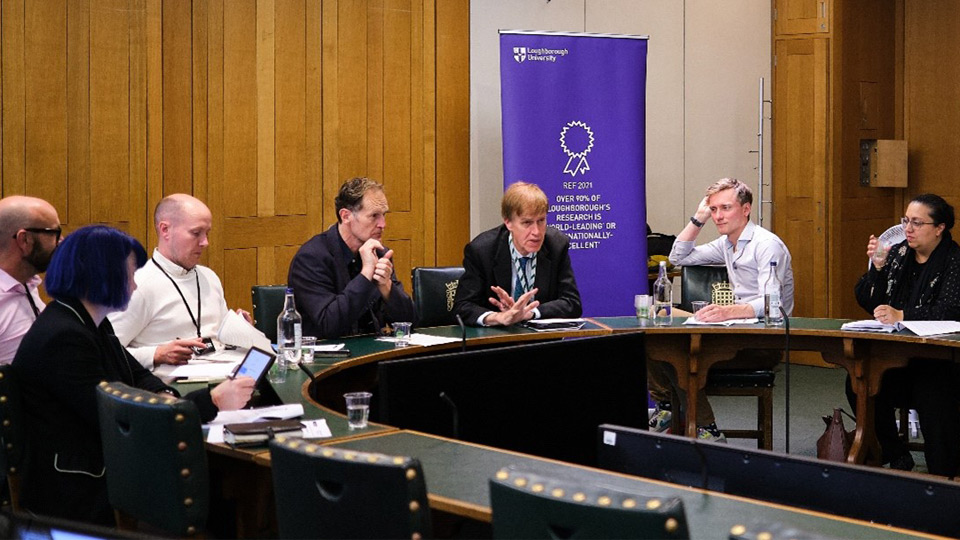Loughborough University Policy event in Parliament
The event was based around Loughborough University’s Centre for Research in Social Policy's (CRSP) research on the minimum level of income required to live with dignity. The work forms part of CRSP’s Minimum Income Standards (MIS) research which began in 2008 and produces budgets for different types of households based on what members of the public consider a minimum socially acceptable standard of living in the UK. These calculations underpin the Real Living Wage, affecting the pay of over 400,000 people. For this specific piece of research, CRSP focussed on whether there are additional or different needs and costs associated with living in London.
The event began with an informative presentation delivered by CRSP co-directors Abigail Davis and Matt Padley about their research. They highlighted that CRSP’s work on MIS puts an emphasis on dignity, rather than just living. This human-centred approach means that the research is focussed on what essentials are needed to support a decent standard of living for a family in London. For example, after conducting focus groups, having curtains or blinds to help create a level of privacy was identified as a crucial aspect of life for those living in blocks of flats in the city. The costs incurred for buying and replacing items such as these curtains – as well as the occasional meal out – are all factored in to calculate the minimum income which allows an individual to fully participate in society.
It was highlighted that four in ten people living in London have an income below what they require for a minimum standard of living, and more than a third of pensioners living in the capital fall below the minimum income standard required to live as fully functional citizens in the city. The report also shone a light on the cost of renting in the city, as 74% of those living below the MIS live in rented accommodation.
The Rt Hon Sir Stephen Timms MP, Chair of the Work and Pensions Select Committee hosted the debate and opened the subsequent panel discussion, endorsing the work CRSP carried out and recommending a considered review of the wealth of data they were bringing to life. The panel discussion, chaired by Loughborough University’s Policy Unit Director, Professor Graham Hitchen, welcomed contributions from liberal conservative think tank Bright Blue Chief Executive Ryan Shorthouse, Liberal Democrat London Assembly Member Hina Bokhari AM and Chief Executive of the Resolution Foundation think tank, Torsten Bell.
The Resolution Foundation think tank’s stated aim is to improve the standard of living of low-to-middle income families and Torsten Bell highlighted during the panel discussion that they use MIS on a daily basis in different aspects of their work and when engaging with stakeholders. Hina Bokhari responded to the findings of the report by describing the deep-rooted poverty people are faced with living in the capital and stated that we need bold and radical change in the welfare system. Ryan Shorthouse highlighted the importance of access to existing support and the need to improve support and advice for people on lower incomes. Much of the discussion focussed on financial challenges facing people - including macro-economic challenges, cost of living, childcare, housing needs - and agreed that it would be desirable to use the cost of goods and services as a starting point for policy discussions rather than income.
Other wide-ranging issues came up in conversation, with Ryan Shorthouse discussing the National Living Wage and Universal Credit. Hina Bokhari discussed the potential for bringing in a Universal Basic Income which sparked intense debate. Ryan and Hina both discussed the need to make the benefits system less complex and more user-friendly.
Policy-related work
This event forms part of a broader programme of policy engagement being led by the Policy Unit, where we will work with internal and external partners to form a coherent programme of work that examines what the UK government and society can do to ensure its population is ‘Living Well’ in the UK now and in the future. This work will entail bringing together evidence and stimulating debate around a number of areas of Loughborough University’s academic research and innovation. We will use the most up to date MIS Reports and work with external partners such as the Resolution Foundation to inform this extensive piece of policy work.
